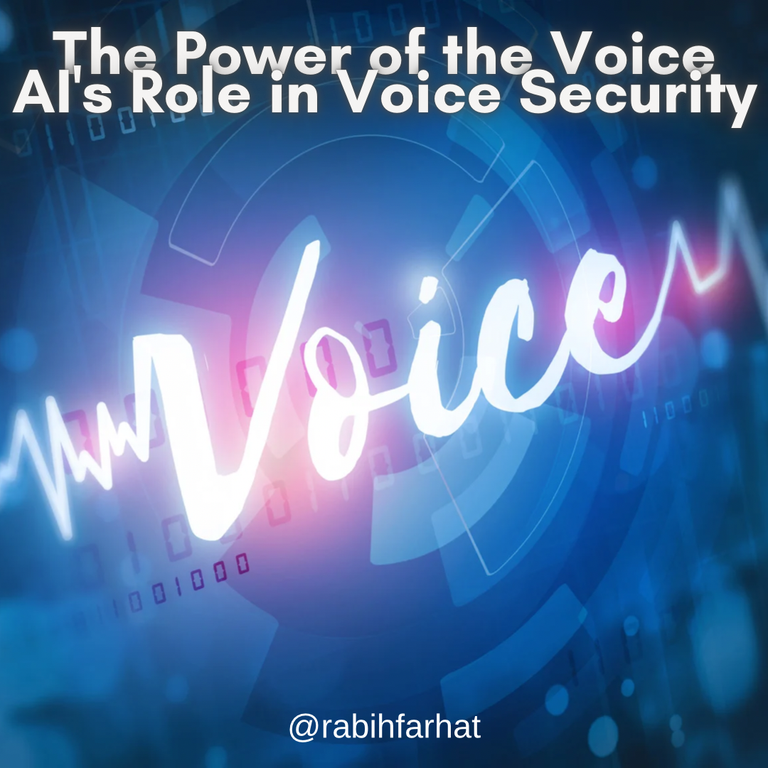Introduction
A vocal fingerprint is a set of unique vocal characteristics that differentiate a particular individual's voice from another, similar to a fingerprint or eye print. These features include vocal frequencies, pitch, speed, speech patterns, and rhythm. Voice fingerprinting is used to verify identity and provide advanced levels of security in many applications, such as banks, smartphones, and call centers.

Previously, voice recognition relied heavily on traditional methods that involved manually analyzing audio using frequency and spectral analysis techniques. These methods were time-consuming and required trained experts to analyze audio recordings and extract unique features from them.
As technology advances, voice recognition techniques have been developed to become more accurate and efficient. Over time, algorithms have been introduced and developed to be able to handle larger sets of data and analyze them more quickly.
AI-powered vocal recognition systems rely on Deep Neural Networks to identify and analyze unique vocal features with high accuracy. These systems can analyze millions of audio recordings to learn the unique patterns of each voice, improve voice recognition accuracy over time by learning from new data, separate voice from background noise and effectively identify vocal features even in crowded environments.
Each individual's vocal fingerprint is unique and difficult to change naturally. However, there are ways to modify or change the vocal signature using technology. Advanced software can adjust frequencies, pitches, and speed to make the sound different. These technologies are sometimes used for legitimate purposes such as protecting privacy or in the arts and entertainment, but they may also be used for malicious purposes such as counterfeiting and spoofing.
Voice fingerprinting is used in intelligence and military operations to accurately identify individuals in phone calls or radio communications. Voice fingerprinting is also used to monitor suspicious communications and identify known voices in audio recordings, which helps in collecting forensic evidence and monitoring activities.
To preserve a voiceprint, each individual's unique vocal characteristics are stored in a secure database. These features include frequencies, pitch, rhythm, and other vocal patterns. When verifying identity, the new voice is compared to the stored voiceprint to verify a match. This process relies on encryption techniques to ensure data is protected from unauthorized access.
In espionage, voice fingerprints are monitored as they pass through networks using advanced spyware that can capture and analyze voice calls in real time. AI-powered voice analysis techniques are applied to extract vocal features and identify speakers. This information is used to monitor suspicious activity and identify wanted individuals.
With the increasing reliance on voiceprint to verify identity, some individuals are resorting to trying to change their voiceprint by changing the speed of speech, accent, and tone. These methods may be partially effective in misleading simple voice recognition systems. However, with the advancement of artificial intelligence and the development of voice recognition systems, these systems have become able to distinguish deep vocal features that do not change easily with these modifications. AI technologies can analyze subtle vocal patterns and recognize a person's unique traits even with intentional voice modifications.
Conclusion
The use of artificial intelligence in voice fingerprint recognition represents a revolution in the field of security and identity verification. By improving the accuracy and speed of voice recognition, this technology can deliver new levels of security and convenience to users. However, the challenge remains in confronting counterfeiting and cyber-attacks based on voice modification techniques.
*Image designed using Canva
Posted Using InLeo Alpha
It's cool that AI technology is harnessed to the good of humanity. I keeps getting better.